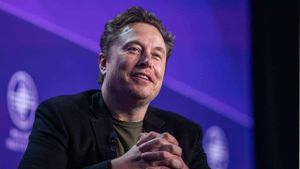The future of work is gearing up for one of its most transformative eras, driven significantly by advancements in artificial intelligence (AI), automation, and robotics. Organizations globally are on the edge of change, pivoting their traditional operational strategies to integrate these cutting-edge technologies. The workplace is not merely adapting; it's getting reshaped entirely.
According to ADP, the transformation isn't just theoretical; it's taking place right now, and businesses must keep pace or risk falling behind. A recently released report from ADP outlines trends predicted to define the future of work, encompassing everything from recruitment processes to employee well-being practices.
Generative AI and its potential are especially noteworthy, as Naomi Lariviere, ADP's Chief Product Owner, explained. She mentioned, "Businesses with 1 to 49 employees may not yet fully realize the potential productivity boosts generative AI can offer." This suggests there's still plenty of room for smaller businesses to catch up to their larger counterparts, who are likely already reaping the benefits of these innovations.
While AI's capabilities are undeniably advantageous, they also bring about concerns surrounding ethical use and employee monitoring. A recent incident highlighted by Reddit users illustrated the dark side of AI monitoring, with software capable of tracking employees' every move, generating 'productivity graphs', and flagging them for taking breaks longer than 30 seconds. These revelations sparked outrage and fears of being over-surveilled, echoing sentiments from the popular show Black Mirror. One user lamented, "AI won’t push us out of work through automation—but burnout." The potential for AI to facilitate burnout rather than improve work-life balance is certainly alarming for many.
One challenge businesses face is the widening skills gap fueled by these technological advancements. Traditional education avenues are struggling to keep pace with the rapid evolution of required skills. Tiffany Davis, ADP’s Chief Inclusion and Diversity Officer, emphasized this point, stating, "It’s important for employers to lean into what skills and experiences their candidates and employees have." It shows there’s growing recognition of valuing practical experience over formal education—an exciting shift, especially for those who might not have traditional qualifications.
Simultaneously, conflicts can arise due to the level of surveillance employed by AI. The controversy over monitoring tools—and the data collected—points to the necessity for transparency and ethical practices. Jason Albert, ADP's Global Chief Privacy Officer, warned, "We expect to see more laws requiring employers to disclose the use of AI in employment decisions." New legislation looms on the horizon, requiring companies to articulate how they employ AI, and this brings up the principle of ethical monitoring practices.
Work-life balance has emerged as another hot topic, with working from home becoming the norm. Remote work has integrated work and life more closely than ever. Jason Delserro, ADP's Chief Talent Acquisition Officer, stated, "Remote work and the evolution of technology have made it possible for us to have about five to six different ways to communicate with each other at any given time." The convenience of always being connected can lead to stress and mental health challenges, making company culture and employee support more important than ever.
Pay transparency is also gaining traction, based on the demands of the modern workforce for equity and fairness. ADP’s Meryl Gutterman mentioned, "Understanding your pay data and benchmarking your pay can help you monitor pay equity issues and market competitiveness." Gone are the days of covert salary negotiations; companies must embrace openness to build trust with employees.
Lastly, there's the pressing need for businesses to shift their HR processes to prioritize skills over obsolete degree requirements. Amin Venjara, ADP’s Chief Data Officer, pointed out the importance of embedding skills across HR processes, stating, "Skills break down what’s necessary to perform a job." This reflects the essence of the modern workforce, calling for new systems and strategies to effectively identify, measure, and develop skills.
Indeed, the workplace is undergoing rapid, transformative changes. Organizations face the challenge of embracing artificial intelligence ethically and strategically, focusing on skill development and employee wellness. It’s not just about offering perks like beanbag chairs or free snacks; it's about creating environments conducive to mental well-being and professional growth.
Moving forward, collaboration will be imperative as companies navigate this complex transition. Industries across the board—from finance to tech—are implementing AI-driven solutions for efficiency. Yet, the introduction of these technologies must be accompanied by ethical guidelines and employee engagement. The rise of autonomous enterprises brings the promise of increased productivity, but it must strike the right balance with human elements—an equilibrium between innovation and workforce satisfaction.
The rise of AI and automation heralds significant benefits but also sparking concerns about workforce dynamics. Industries must tread carefully as they adopt these technologies, embracing transparency and ethics. The evolution necessitates rethinking strategies across the board—from hiring practices and employee wellness initiatives to embracing pay transparency and prioritizing skill assessments. The next frontier is less about automaton innovation alone, and more about enhancing human labor with technology. After all, the best work environments will be those where sharp algorithms and genuine human insight coexist harmoniously, steering the future of work toward equitable outcomes.



